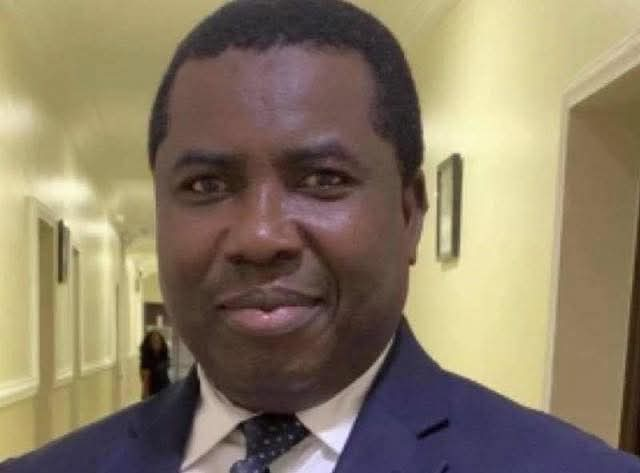
By News Desk
Substantial decrease in the revenue (FAAC) allocation to the various levels of government in Nigeria is raising concerns over the ability of the 36 states of the federation to live up to their financial obligations in the coming months.
Available records show that revenue allocation to federal, state and local governments has declined from a peak of N970.57bn in July 2021 to N680.783bn in May 2022, representing a 30 per cent reduction over the period.
Nigeria earns the bulk of its revenue from crude oil, but it has paid N2.1trn for the subsidy of premium motor spirit, otherwise known as petrol in the first six months of the year and could pay another N4trn by the end of the year, according to the International Monetary Fund (IMF) estimates.
The lingering subsidy regime has made it nearly impossible for the Nigerian National Petroleum Company (NNPC) to make remittances to the government consistently. The federal government has raised its budgetary allocation of N443 billion for petrol subsidy to N4 trn, which has been approved by the National Assembly.
The situation is worsened by declining oil production and theft. According to OPEC Monthly Oil Market Report, oil production fell to 1.2 million barrels per day in April 2022 from 1.238 million barrels in March, a quantity far from the oil benchmark of 1.88 million barrels per day in the 2022 budget.
The inability of the NNPC to carry out its statutory obligations to the federation, which continued for the fifth month in May, saw the firm recording a N704 billion deficit for the year so far.
In its latest monthly presentation to the Federation Account Allocation Committee (FAAC), the national oil company also disclosed that it deducted another N327.07 billion as shortfall in the month under review.
With a projected N1.473 trillion payment to the federation for the entire year and a monthly remittance of N122.767 billion, the implication is that the federal, state and local governments may continue to have cash shortages for a while since the payments constitute a major revenue source.
In May, the NNPC stated that it would deduct a record N874.5 billion when the FAAC met this June, but the latest data shows that the entire revenue of the firm for the month was not even enough to net off such a huge sum. Part of the amount has now been deferred till this month (July).
Last week, the federation shared a total sum of N680.783 billion, about N24,181 billion higher than the N656.6 billion shared in May.
Subsidy deductions by the NNPC has often reduced the amount being shared by FAAC, piling pressure on the finances of state governments as they battle to meet their obligations especially payment of salaries..
Little wonder the states’ governors had earlier this year expressed concerns and asked the federal government to remove subsidies and save states from going bankrupt.
In January, February and March 2022 and April, petrol subsidy gulped 210.38 billion, N219.78 billion, N245.77 billion and N271 billion respectively, with the deductions expected to continue throughout the year.
Surging international oil prices have also triggered increase in domestic fuel prices, compounding the subsidy burden since Nigeria lacks the capacity to refine the products it consumes.
According to a news report by TheCable, with the current deductions, NNPC has expended N1.27 trillion on petrol subsidy in the last five months—about 31 per cent of the N4 trillion provision for the year.
The report further stated that NNPC said it would recover the sum of N845.15 billion as a value shortfall from June 2022 proceed billed for sharing in July.
“The value shortfall on the importation of PMS recovered from May 2022 proceeds are N328 billion, while the outstanding balance carried forward is N617 billion,” NNPC said.
“The estimated value shortfall of N845 billion (consisting of arrears of N617 billion plus estimated May 2022 Value shortfall of N227 billion is to be recovered from June 2022 proceed due for sharing at the July 2022 FAAC meeting,” it added.
Opening the books
On Wednesday, a coalition of States Internally Generated Revenue Services across the 36 states of the federation said it had launched a fresh investigation into how the federal government is remitting the Pay As You Earn (PAYE) fund into their individual state coffers.
According to The Punch, Executive Chairman of the Plateau State Internal Revenue Service, Dashe Arlat Dasogot, said the probe followed revelations by states about how they had been experiencing shortfall from their own share of the PAYE remittances from the federal government in the past months.
Dasogot, who faulted the Finance Act 2021, describing it as unfavourable to the states in terms of tax payment said, “We held a meeting and the concern of all states generally bothers on the continuous shortfall of their PAYE remittances from the Federal Government.
“Like in the case of Plateau, we used to share about N300 million PAYE remittance to the state every month but what we have been getting in the past months, especially this year, has been hovering between 180 million and N220 million.
“Other states also complained about the same thing. And the explanation we got during our last Joint Tax Board meeting was that not all the ministry workers are paid.
“So, we have decided to investigate the matter further to enable us address the problem. We will get the payroll of every federal establishment in the states and compare them with what we have been given.”
Beyond the limit
An energy expert at PwC, Habeeb Jaiyeola, believes that the multiple unique revenue-generating potentials across states must be fully harnessed to increase IGR from each state. He thinks over-dependency on FAAC has not encouraged state governments to critically look inwards to maximise their revenue-generating potential.
“It is very important and urgent for state governments to seriously look at other revenue-generating streams like mining, agriculture, entertainment, information technology and so on, and significantly reduce their dependency on FAAC,” Jaiyeola said.
A Lagos-based senior financial analyst and Director at Bishop and Rooks, Mr. Wole Oluyemi, said it was obvious that states might not continue to fund big projects and could default on many fronts.
“There is a limitation on the number of projects they can do. Those who have a high-risk appetite and still want to continue those projects will start owing salaries because something must give way.
“Projects will be abandoned and some of them will start borrowing in the form of bonds for projects so that they can continue with their plans,” Oleyemi said.
Widening the potential
Meanwhile, the Organisation of Petroleum Exporting Countries at its 30th OPEC and non-OPEC Ministerial Meeting held via video-conference on Thursday, increased Nigeria’s August, 2022, oil production quota by 1.5 per cent to 1.826 million barrels per day (mbpd), from 1.799 mbpd in July, 2022.
Under the present arrangement, Nigeria’s oil quota remains the highest in Africa, followed by Angola and Algeria with 1.525 mbpd and 1.1055 mbpd respectively, while Sudan is the least with 75,000 bpd.
The organisation has consistently increased the production quota of Nigeria and other member countries in the past few months to enable it return to the pre-Covid level when production was much higher.
But it remains doubtful if Nigeria, which has not been meeting previous quotas, can produce the new quota as its capacity to produce crude oil is currently constrained by pipeline vandalism, oil theft and illegal refining among other factors.”
In its latest briefing notes seen by Business Hallmark, Shell Petroleum Development Company, the nation’s largest crude producer, stated: “The fall in output was largely a result of curtailed oil production because of heightened security issues, such as crude oil theft and illegal oil refining.
“Production numbers were also down as a result of divestment action, including the sale of SPDC’s 30% interest in OML 17 for $533 million.
“In the last quarter of 2021, crude oil theft from pipelines across the region increased ostensibly as a result of rising oil prices, which made the activity more profitable. Security risks have heightened and production in some areas has been put on hold.
“The situation is impacting operators across the Niger Delta. The Nigerian National Petroleum Corporation (NNPC) has reported that crude thefts in 2021 reached 200,000 barrels per day – a quarter of onshore production.










